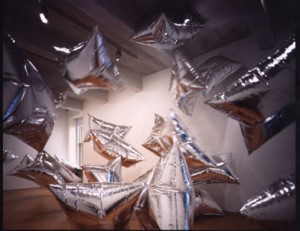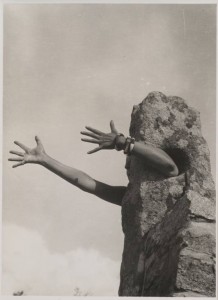
Silver Clouds, Billy Kruger and Andy Warhol 1966.
The Government grants for students from low-income backgrounds to help provide support with living costs while in higher education have been replaced by repayable student loans.
Participation rates have been shown to vary according to whether or not a student received free school meals at the age of 15 and a student who went to an independent school or college is still more likely to attend a highly selective university than their peers who went to state schools.
This week Peter Scott has written how “Education no longer seems such a high road to hope”.
Hope, or even glimpse at a silver lining, seems a scarce commodity for those who work to transform higher education into fairer, more equitable and more socially just spaces of learning.
Scott teases out how, as a sector, we are not very good at working in solidarity with each other and that this has resulted in higher education being not for everybody. Celebrating the institutions who do the most work to widen participation, Scott suggests, could be one way to widen support – to get back on the road to hope – for higher education, particularly for those most disenfranchised.
We need to be better at reaching out our arms for each other and for those hardest to reach.

I Extend My Arms 1931 or 1932 Claude Cahun
As part of the Fair Access Research project we have published an article exploring the way that research is being engaged with as part of institutions’ access agreements.
We see research as one of the silver clouds for solidarity that we all might need at the moment. By drawing on the existing knowledge, sharing expertise and learning together we suggest that universities and colleges can embed a culture that works for social justice as well as provide much needed understanding about how to best work to widen participation.
We have developed our thinking to explore how the ideas, rhetoric and policies of widening participation are being learnt in different organisations. To contribute to this research and share your learning, please do complete our survey for the sector to help understand this more. For more information about our organisational learning research email Dr Maggie Hutchings.
Hope can be a funny thing. It can can be hard and it can easily turn, against itself, against youselves, against others. However, the work of José Esteban Muñoz can offer another way to practice hope:
“Practicing educated hope, participating in a mode of revolutionary consciousness, is not simply conforming to one group’s doxa at the expense of another’s…It is not about announcing the way things ought to be, but, instead, imagining what things could be. It is thinking beyond the narrative of what stands for the world today by seeing it as not enough” (from Duggan and Muñoz, 2009: 278).
So much of what we’ve been exploring as part of our Fair Access Research has been about “imagining what things could be” for widening participation research, practice and policy. That is why we approach research as a practice of learning together, of solidarity with students, Students’ Unions, practitioners, policymakers and other researchers. If one of the points of widening participation is to change the world of education, then reaching out for some hope seems like a good place to start.
For more information about the Fair Access Research project please email the Principal Investigators Dr Vanessa Heaslip and Dr Clive Hunt.








